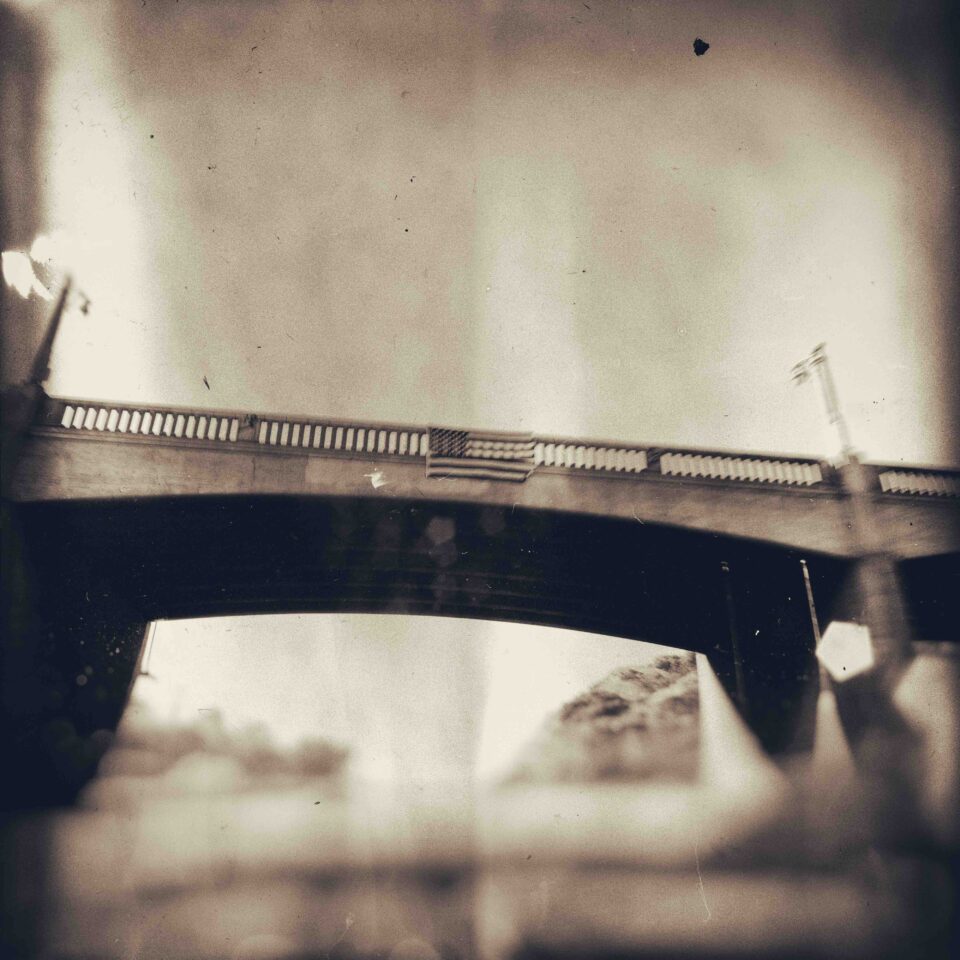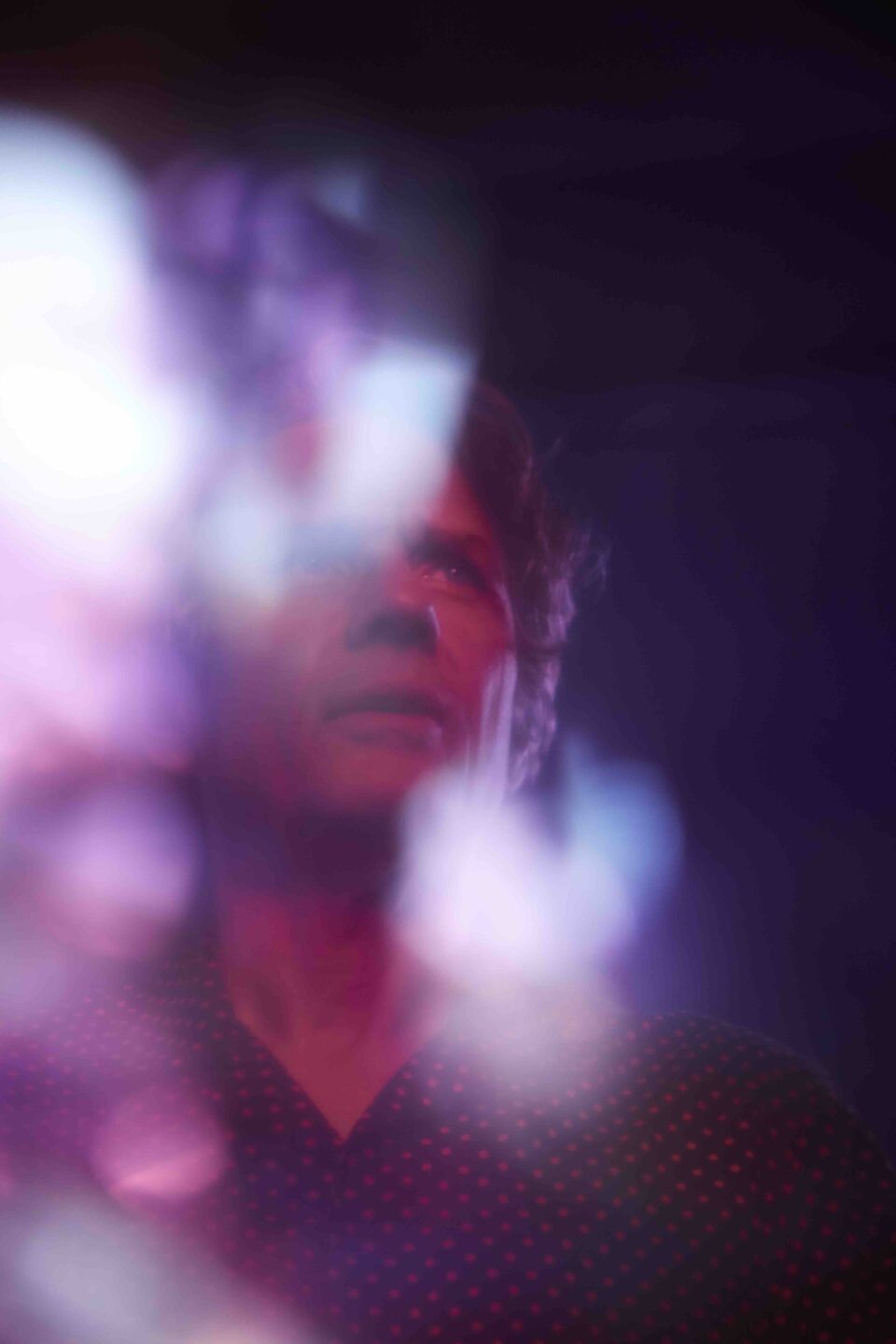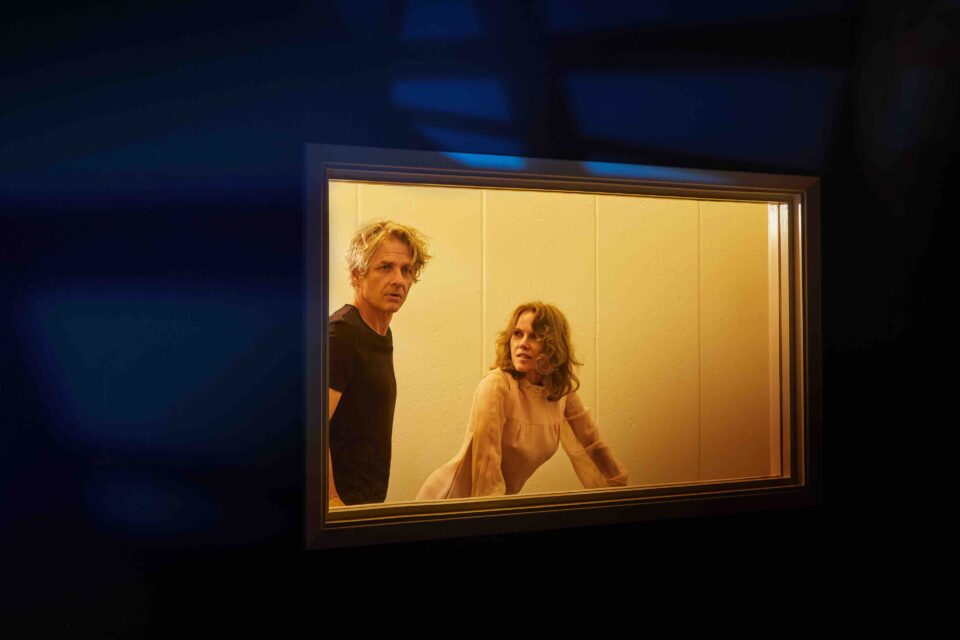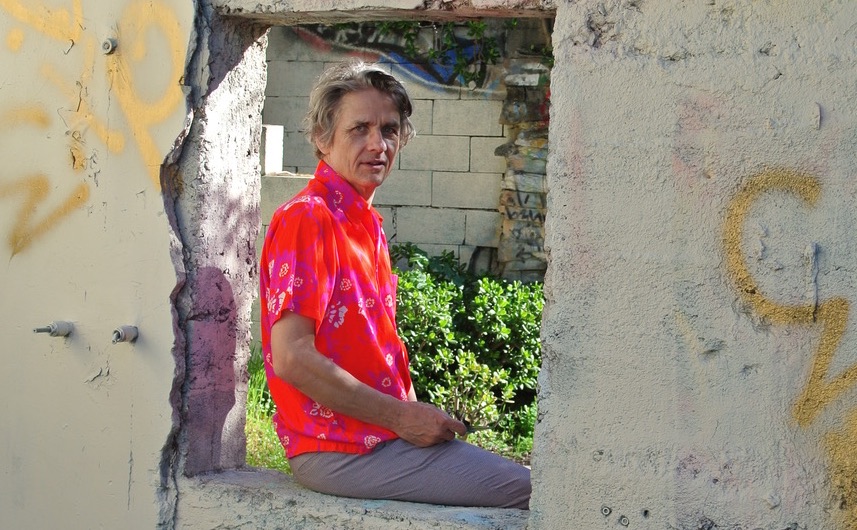This article appears in FLOOD 12: The Los Angeles Issue. You can purchase this special 232-page print edition celebrating the people, places, music and art of LA here.
My latest album—my first new songs since moving to Los Angeles eight years ago—is titled I Have Nothing to Say to the Mayor of L.A. What is my beef with the mayor? That line was intended to suggest that the narrator had been drinking. But my Echo Park neighbor Matt Fishbeck, who designed the album art, insisted that it had a certain Phil Ochs gravitas and should be the title. Ochs himself made three baroque albums out here that his fans never loved. Anyway, that’s how “I Have Nothing to Say” went to the top of the list, and once you have a placeholder album title, well, as the weeks go by it gets harder to replace until one day it seems that it was always the title.
My wife (and collaborator) Britta and I moved here from Brooklyn in 2013—precipitated by my ex-wife moving out here for work along with my teenage son. We didn’t want to spend those years on opposite coasts, and it sounded like an adventure. We figured we’d stay four years. We rented a two-bedroom bungalow in the Hollywood Dell, a little oasis located through a tunnel under the 101, just off the Cahuenga Pass. In one direction were slightly seedy Hollywood streets, but our street also led all the way up to Lake Hollywood, which is a magical spot for a stroll or a jog. Better still, we were walking-distance to the Hollywood Bowl. My first time seeing the LA Philharmonic at the Bowl, with Esa-Pekka Salonen conducting, I thought of my favorite Columbo episode, Étude in Black, wherein John Cassavetes plays the handsome conductor who murders the young pianist he’s having an affair with, but makes it look like a suicide by oven gas. Columbo is having none of it. “Murder is bad, but suicide is sad,” he says. “Why would a girl like that put her head in the oven?”—a line I had inserted into a Luna song (“Bobby Peru”) back in 1997.

U.S. flag on Pilgrimage Bridge after 9/11, Hollywood Freeway, Hollywood, California. 15 September 2001.
I’ve been playing shows in Los Angeles since 1988; Club Lingerie (with Galaxie 500), the Whiskey, the Roxy, the Troubadour, the El Rey, and the Silent Movie Theatre. But my first show as a resident was at Club Largo at the Coronet Theatre. Flanagan, the charming club-owner, told me how he saved the historic Coronet from being turned into an Urban Outfitters. I told him I was reading a biography of Charles Laughton and that it felt special to be performing in the same theater where Laughton and Bertolt Brecht had staged Life of Galileo in 1947. Flanagan recommended another book: Otto Friedrich’s City of Nets, which tells that story and many others about exiles from Europe who settled in Hollywood in the 1940s; Arnold Schönberg, Thomas Mann, Ingrid Bergman, and Billy Wilder. Brecht did not love it here—he was the most celebrated playwright in the world but struggled to find work and lamented that he couldn’t find a decent loaf of bread.
I read Reyner Banham on local architecture, Mike Davis’ City of Quartz, and Hunter Drohojowska-Philp’s Rebels in Paradise: The Los Angeles Art Scene and the 1960s. I watched Los Angeles Plays Itself, Thom Andersen’s long, cranky look at the city as it appears in film, where he cuts through the bullshit (dear Joan Didion: people do ride the bus in LA), and I realize I still know very little about the city. But this is what I enjoy about Los Angeles: it may not have a long history, but it is keenly observed (when not being bulldozed), and you can touch that history in place after place, from restaurants to repurposed buildings.

This is what I enjoy about Los Angeles: it may not have a long history, but it is keenly observed (when not being bulldozed), and you can touch that history in place after place.
After four years in Hollywood, and with our rent going up each year, Britta and I bought a cottage (that’s what the real estate agent called it) on top of a very steep hill in the Elysian Heights section of Echo Park. We decided we were staying. This area was once known as Red Hill on account of the communists and socialists who lived here. We learned that before they made films in Hollywood, there were film studios in Silverlake and Echo Park; Mack Sennett had his famous studio on Glendale Boulevard, now marked by a lonely plaque, next to the Jack in the Box and a complex of self-storage lockers. Nearby, on Alvarado Street, there’s a new apartment complex built on the side of the hill where the Hillside Strangler(s) dumped victims’ bodies.
During the pandemic I read Gerald Horne’s The Final Victim of the Blacklist, about John Howard Lawson and the Hollywood Ten, and watched Thom Andersen’s other documentary Red Hollywood. It seems ludicrous in retrospect, this notion that communist screenwriters were sneaking their messages into Hollywood films, when their scripts were already scrutinized and sanitized by the studios and by the (very) Catholic Production Code Administration. But the anti-communist (and anti-semitic) witch-hunt achieved its purpose, purging some and frightening others.
Journalists sometimes ask me, do they detect sunny West Coast vibes in the new music? Musical influences are just as likely to be German as Californian, but where I live (and what I’m reading) does find its way into the lyrics.
Journalists sometimes ask me, do they detect sunny West Coast vibes in the new music? Musical influences are just as likely to be German as Californian, but where I live (and what I’m reading) does find its way into the lyrics. I wrote one song (“Red Hollywood”) about blacklisted actor John Garfield, and for another, “Why Are We in Vietnam?” I tuned my guitar to the Celtic DADGAD tuning, and sang:
Why are we in Tripoli?
Why are we in Baghdad?
Why am I in Echo Park
Writing songs in DADGAD?

But back to the mayor—if there was one thing I’d ask him about, it’s the ever-worsening homeless crisis that we see all around us, not just on Skid Row, but in parks, at highway underpasses, gas stations, and beaches, where more and more people live out of tents, cars, or vans.
When the pandemic cancelled all our tours, and musicians started doing live stream shows, I figured this was not for me. But journalist-activist Patrick Range McDonald called to see if Britta and I would play an online benefit for Housing Is a Human Right, the housing advocacy division of the AIDS Healthcare Foundation, who have been organizing for rent control in the city. McDonald has written extensively on the housing crisis in Los Angeles, on NIMBY and YIMBY and what he calls the Garcetti-fication of the city; he has more to say to the mayor than I do. The city does not lack housing, he told me—there are plenty of steel and glass apartment complexes being built at top market rate—but it lacks affordable housing. So we did the show from our living room on an April evening; they got a lot of donations for the cause, and we found we rather enjoyed it, and continued to perform monthly live stream shows for the rest of the year.
My son just graduated from U.C. Berkeley, turned 22, and moved to East Williamsburg where he is surrounded by cool bars and clubs. He loves being in Brooklyn, and If I were his age, I’d wanna be there too. But here in Echo Park, in 2021, for the first time in my life, I feel part of a community of musicians, artists, writers, and poets who live in these particular hills. I’m not sure it’s sustainable, but we’re staying put. FL







